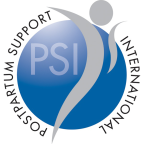Offering List

We offer a year-long infant and early childhood mental health (IECMH) community of practice for Colorado mental health therapists who serve children ages birth to 5.
The Community of Practice is designed to impart knowledge across four main areas of IECMH clinical practice:
- relationship-based assessment
- developmentally sensitive diagnosis
- evidence-based treatment of very young children
- reflective practice

Circle of Security has established a parenting reflection program offering the core components of the evidence-based and internationally acclaimed Circle of Security protocol. This seminar trains professionals to use an eight-chapter video to reflect with parents and caregivers. The program presents video examples of secure and problematic parent/child interaction, healthy options in care giving, and animated graphics designed to clarify principles central to COSP. COSP implements decades of attachment research in an accessible step-by-step process for use in group settings, home visitation, or individual counseling.

Awareness and treatment of perinatal mood and anxiety disorders are a vital component of infant and early childhood mental health. We offer three options in collaboration with Postpartum Support International: 2-day Perinatal Mood Disorders: Components of Care, Advanced Perinatal Mental Health Psychotherapy and Advanced Perinatal Mental Health Psychopharmacology.

The Working Model of the Child Interview is a structured clinical interview that assesses a caregiver’s internal representations, or working models, of their relationship with a particular child. It helps clinicians better understand how caregivers think and feel about their young children. The Working Model of the Child Interview can be one very helpful component of a larger, comprehensive relationship assessment that informs dyadic IECMH clinical treatment.

The Crowell Procedure provides a method of assessing caregiver-young child interactions in a clinical setting. The Crowell procedure involves a series of seven episodes including a free play, clean-up, blowing bubbles, two developmentally graded teaching tasks and a brief separation and reunion. The procedure is designed to elicit behaviors that allow the clinician to focus on the relationship between a child and his or her caregiver in a setting that is unstructured enough to allow for “real-life” or spontaneous interactions. Observational assessment of a dyad using the Crowell can be one very helpful component of a larger, comprehensive infant/young child-caregiver relationship assessment that informs dyadic IECMH clinical treatment.

Child Parent Psychotherapy (CPP) is an intervention model for children aged 0-5 who have experienced traumatic events and/or are experiencing mental health, attachment, and/or behavioral problems. A central goal is to support and strengthen the caregiver-child relationship as a vehicle for restoring and protecting the child’s mental health. Treatment also focuses on contextual factors that may affect the caregiver-child relationship (e.g. cultural norms and socioeconomic and immigration-related stressors). For children exposed to trauma, caregiver and child are guided over the course of treatment to create a joint narrative of the traumatic event and to identify and address trauma triggers that lead to dysregulated affect and behavior.

DC:0-5™ is the Diagnostic Classification of Mental Health and Developmental Disorders of Infancy and Early Childhood published by ZERO TO THREE. DC:0-5 is the revised and updated DC:0-3R and was created to provide developmentally specific, relationship based and contextually grounded diagnostic criteria and information about mental health disorders in infants and young children.

The Diversity-Informed Tenets for Work with Infants, Children, and Families are a set of guiding principles that raise awareness about inequities and injustices embedded in our society. The Tenets empower individual practitioners, agencies and systems of care to identify and address the social justice issues intricately intertwined with all infant mental health work.

This broad, foundational level training is customizable based on the audience. Topics include definition of infant and early childhood mental health, the importance of relationships in the early years, brain development in the first five years, and impact and symptoms of trauma and adverse childhood experiences.

DC:0-5™ is the Diagnostic Classification of Mental Health and Developmental Disorders of Infancy and Early Childhood published by ZERO TO THREE. DC:0-5 is the revised and updated DC:0-3R and was created to provide developmentally specific, relationship based and contextually grounded diagnostic criteria and information about mental health disorders in infants and young children.

